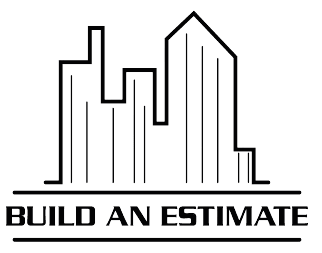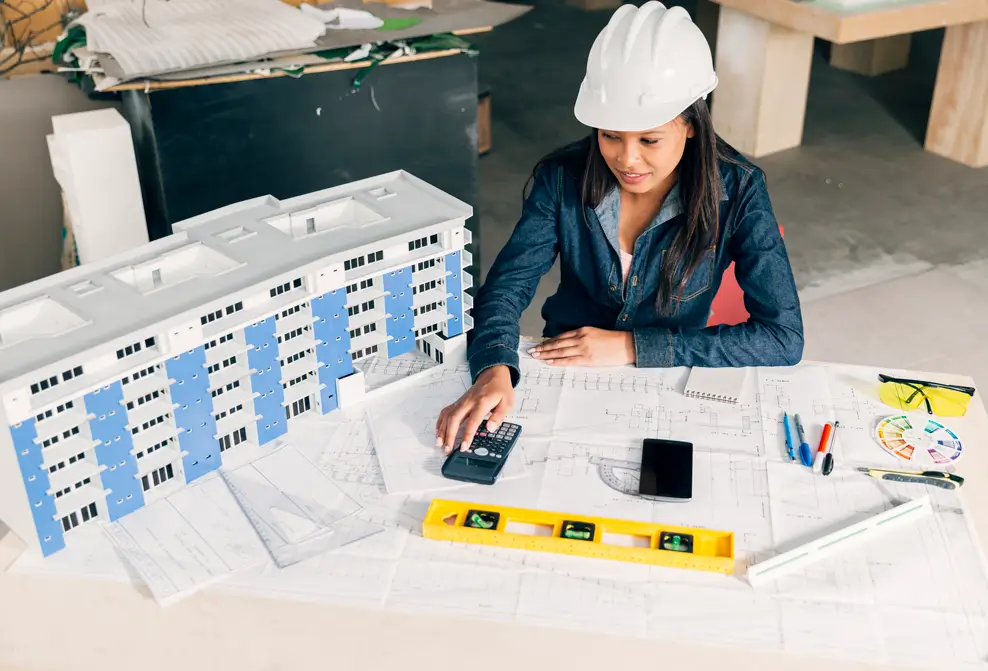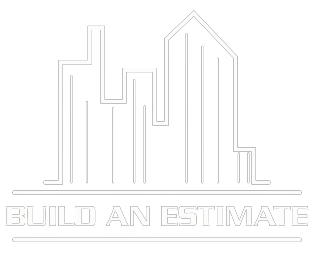Did the bidding wars get to you? We all want to succeed and do our best, whether our goal is to expand our business or simply improve our estimation and bidding skills.
Everyone in the industry may bid more intelligently by following their specific methods, regardless of how big of a name they are in the construction industry or how little their business is. The good news is that we have them all gathered for you.
Make a lasting impression using our effective tactics! Let’s learn how to win construction bids, aim for flawless projects, and establish yourself as the contractor that everyone wants to deal with.
Understanding The Bidding Process
Businesses and organizations frequently use the bidding process to select the finest contractors or service providers for their projects. No matter how experienced you are or how recently you entered the industry, knowing this process is essential to making an excellent impression and winning those desired projects.
Basically, The bidding procedure is essentially an organized competition. The main steps involved are broken out as follows:
➧ Identification of Needs: The project manager pinpoints a particular requirement, such as constructing a new office building or initiating a marketing initiative.
➧ RFP, ITB, RFQ: The project owner releases a formal document detailing the project details, deliverables, timetables, and financial limits once the need has been established. This document is known as a request for proposal (RFP), invitation to bid (ITB), or quote request (RFQ). The term “RFP,” “ITB,” or “RFQ” may be used for this document, depending on the project and industry.
➧ Bid Preparation and Submission: The process of preparing and submitting a bid involves interested parties, such as marketing agencies or construction companies, reviewing the RFP/ITB/RFQ and putting together their offers. A strong bid usually consists of:
- A thorough comprehension of the project’s requirements.
- A thorough proposal that outlines your strategy and methods.
- An affordable estimate that breakdowns your price system.
- Relevant training and expertise inside your group.
➧ Evaluation and Selection of Bids: Next, using predetermined criteria, the project owner assesses the submitted bids. This could involve elements such as background, credentials, suggested approach, and of course the price that is being given.
➧ Contract Negotiation and Award: The project owner chooses the winning bid and works out the details of the final contract after giving it a thorough assessment. On the basis of more negotiations, this could include modest changes to the cost or the schedule.
➧ Project Execution: Following contract approval, the successful bidder begins work on completing the project in accordance with the conditions specified.
Types of Construction Bids
Construction bidding can be categorized primarily into two categories:
Contract type
Bidding procedure
By Bidding Process
➧ Competitive Bidding in Open Tendering: The most popular approach allows any competent contractor to make a bid. Although it encourages competition and could cut costs, the lowest bidder might not be the most competent.
➧ Selective tendering: Only a small number of pre-qualified contractors are invited to submit bids in a selective tendering process, also known as invitation bidding. This guarantees a pool of qualified bidders, but it may also reduce competition and raise costs.
➧ Negotiated Tendering: In this scenario, one pre-selected contractor is engaged in negotiations and talks. Although it can be time-consuming and offer the contractor greater authority, it enables customization and teamwork.
By Contract Type
➧ Lump Sum Contract: For the duration of the project, the contractor offers a single, fixed price. Although this is straightforward and simple to comprehend, there isn’t much room for modification when it’s being built.
➧ Unit Pricing Agreement: The contractor determines the cost for each unit of work (for example, each square foot of concrete poured). This works well for tasks with unpredictable amounts, but it requires careful supervision and precise requirements.
➧ Time and Materials Contract: In addition to a fee, the contractor gets compensated for all labor and material expenses. Although it can be costly for the owner, this is helpful for last-minute adjustments or repairs.
➧ Cost-plus contracts: The contractor is paid a fee in addition to the actual project expenses by the owner. While this is advantageous for complicated or expedited projects, it deters the contractor from cost containment.
➧ Design-Build Contract: The project’s design and construction are managed by the contractor. The owner has less control over the design, but there is a single point of contact and a faster completion time.
➧ A guaranteed maximum price (GMP): This contract limits the project’s overall cost and resembles cost-plus. This creates a compromise between some contractor flexibility and cost predictability.
➧ Construction contract with incentives: This type of agreement pays the contractor for reaching performance goals, such as meeting deadlines or budgetary constraints. It can encourage excellent performance, but the incentive plan must be carefully thought out.
➧ An Integrated Project Delivery (IPD): This contract is a cooperative method in which the owner, designer, and contractor collaborate on the project. It encourages cooperation and creativity, but it also necessitates a high degree of communication and trust.
The ideal form of construction bid will be determined by details of the project, the owner’s willingness to take on risk, and the intended degree of cooperation.

Construction Bidding Process
Contractors compete for projects through the construction bidding process, in which they submit offers with comprehensive cost estimates. Contractors submit their credentials and bids for a particular project in place of resumes and references; it’s basically a competitive interview procedure.
This is an outline of the usual bidding process:
Bid Solicitation: The bid document is issued by the project owner to start the bidding process. This document, which is also known as an invitation to bid (ITB) or request for proposal (RFP), contains project specifics such as the budget, schedule, and scope of work.
Bid Submission: After reading the RFP/ITB, prospective contractors get ready to submit their offers. This entails calculating project expenses meticulously, taking into account labor, supplies, machinery, and profit margin. Then, by the deadline, they turn in their proposal.
Selection of Bids: The project owner assesses the bids that are submitted. This extends beyond finding the best deal. They take into account things like the contractor’s background working on projects similar to theirs, credentials, references, and their entire bid.
Contract Formation: After a contractor is selected, more discussions may take place to settle the specifics of the agreement. Before construction begins, all parties are guaranteed clarity and understanding by the contract, which outlines their respective rights and obligations.
Project Delivery: As soon as the contract is signed, work on the project begins. The construction process is overseen by the contractor in compliance with the prearranged schedule and plans.
Keep in mind this is a general overview of the construction bidding process. According to the project and the parties involved, there may be changes to this simplified overview. But it does a decent job of illustrating how construction bidding works.
Top Bid Selection Criteria
Selecting the cheapest option is not the only step in selecting the winning bid. Top factors for choosing bids include the following:
Price: Price is undoubtedly a significant aspect. However, it ought not to be the sole one. Value for money should be evaluated while taking the caliber of the work or goods being provided into account.
Qualifications: Is the bidder qualified to provide what you require in terms of experience and knowledge? This covers personnel qualifications, related prior projects, and technological expertise.
Experience: One of the best predictors of future success is a solid track record in related initiatives. Seek out bidders who can prove they can stick to budgets and timelines without sacrificing quality.
Capability: Does the bidder possess the infrastructure and resources necessary to manage the project successfully? This covers labor, tools, and availability of required materials.
Schedule: How feasible is the bidder’s estimated timeline for completion for the project?
Risk Management: How will the bidder handle potential risks and challenges during the project? Their risk prevention plan can tell you a lot about their proactiveness.
Quality: What quality standards does the bidder follow? Their quality control procedures and past performance on quality metrics are important factors.
Compliance: Does the bid comply with all the legal and regulatory demands outlined in the bidding process?
Strategies for winning construction bid proposals
When researching on “how to win construction bids” a great bid proposal is frequently the difference between landing that dream construction project and not. The following are crucial Tips to Win More Construction Bids:
Before You Bid:
Recognize your expenses: Extensive cost estimation is essential. Consider labor, supplies, machinery, licenses, and unanticipated events. Precise estimates guarantee that your offer is viable and competitive.
Place calculated bids on projects: Spend no money on unsuitable projects. Pay attention to bids that fit your experience, resources, and price range.
Send in your bid as soon as possible: Being the first to provide a comprehensive proposal shows responsiveness and has the power to influence the client’s choice.
Analyze your clients: You may better tailor your proposal to the client’s demands and project objectives by being aware of your clients objectives.
Making a Winning Proposal:
Emphasize your value and sell your offer not just based on price: Even if price matters, emphasize the value you provide that goes beyond the profit. Emphasize your experience, track record of safety, and capacity to deliver projects on schedule and on budget.
Compose a strong proposal: A well-written proposal is free of errors, straightforward, and brief. Draw attention to your skills and expertise in a way that speaks to the demands of the customer. Making a strong proposal can be one of the great tips to Win more Construction Bids.
Display your credentials and related experience: Showcase prior work that is comparable to the project you are bidding on in terms of scale and complexity to establish your expertise.
Use software for construction estimation: To assure consistency in your bids, increase accuracy, and speed the estimate process, think about utilizing specialized construction softwares.
Optimizing Your Bid:
Increase your team productivity: Boost the output of your team by streamlining internal procedures to guarantee quick and efficient bid preparation.
Overbidding the competing bidder: A intentionally higher bid that accounts for the actual project cost and reduces risks may, in some circumstances, be a successful tactic—especially if you can show the value it will add
Building Relationships:
Build relationships: Building relationships and networking with project owners and decision-makers can help you gain important information and support for your proposal.
Be social in events: Attending industry events is a great way to network and demonstrate your expertise to prospective clients. This strategy for Winning Construction Bid Proposals can surely works for every contractor.
Following Up and Beyond:
Follow up and negotiate: Following up politely after submitting your proposal can show that you are still interested. Be ready to negotiate certain details while keeping your competitive advantage.
Get feedback: Asking for feedback on unsuccessful bids helps you pinpoint areas that need work and make your next proposals stronger.
Researching and Identifying Profitable Construction Projects
In the competitive construction industry, acquiring profitable projects is essential for your company’s success. This section will walk you through excellent research strategies for identifying projects with high profit potential.
Market Research:
Market Research: Keep up with current construction trends in your area and niche. Are some project categories experiencing a rise? Is there an increasing demand for sustainable building practices? Understanding these tendencies will allow you to modify your offers and uncover profitable possibilities. Industry magazines, construction association web pages, and government reports are all useful resources for trend analysis.
Local Development Projects: Follow scheduled development projects in your region. Many local governments keep public databases of upcoming development projects. This enables you to actively research possible projects that match your experience.
Competitor Analysis: Examine your competitors’ project portfolios to determine what types of projects they specialize in. This can show market gaps in which your organization can provide distinct value offers.
Project Evaluation:
Project Scope: Examine the project plans, specs, and timelines carefully. A thorough grasp of the project’s complexity enables you to provide accurate cost estimates and identify possible challenges that may impact profitability.
Material Costs: Examine current market rates for the project’s necessary materials. Variations in the cost of materials can have a big effect on profitability. In order to accommodate for future price rises, think about putting escalation clauses in your offers.
Labor Costs: Based on the scale of the project, the skill sets needed, and the going rate for labor in your area, estimate the labor expenses. Pay increases may result from a labor shortage, therefore account for this risk in your calculations.
Profitability Analysis:
Cost Estimation Software: To get thorough cost breakdowns, use software for construction cost estimation. These tools provide an accurate view of project costs by taking into account a number of variables, including personnel, materials, equipment, and permits.
Profit Margin Goals: Set a specific profit margin goal for every project. When determining your profit margin, take into account variables such as market competitiveness, risk tolerance, and overhead expenses.
Comparative Bids: Examine previous bid results for comparable projects before placing a bid on a public project. This helps you create a competitive offer by providing you with an idea of the average bids.
Bonus: Legal and Insurance Considerations
Make sure you are aware of the potential legal and insurance issues before beginning any project:
Legal Considerations:
1. Contracts: Make sure contracts specify the extent of the work, terms of payment, and procedures for resolving problems.
2. Liability: Recognize your responsibility for any inaccuracies or omissions in estimates, and make sure contracts restrict your liability.
3. Compliance: Know about zoning laws, construction codes, and other relevant municipal requirements.
4. Intellectual Property: Prevent illegal use of your estimates and other intellectual property.
5. Conflict Resolution: Create a procedure for settling disagreements with customers or subcontractors.
Insurance Considerations:
1. Professional Liability (E&O): Obtain insurance to guard against estimate inaccuracies or omissions.
2. General Liability: When visiting a place, think about getting insurance to cover property damage or bodily injury.
3. Cyber Insurance: Guard your company from online threats and data breaches.
4. Business Insurance: Take into account protection against equipment breakdown, business interruption, and other dangers.
5. Workers’ Compensation: To cover illnesses or injuries sustained at work, make sure you have workers’ compensation insurance if you employ people.
Real-Time Example
Assume you are an expert in building homes. You learn about a local trend for eco-friendly housing through market research. You come upon a local development project that aims to build multiple environmentally friendly single-family homes.
You may prepare a precise bid by looking into the material costs for energy-efficient elements like solar panels and recyclable building materials. You can establish a competitive price with a reasonable profit margin by examining past bid data for comparable eco-friendly projects. Don’t forget to account for possible delays brought on by the specific tools or methods required. Lastly, before placing your bid, confirm that sustainable construction methods are covered by your insurance.
With this strategy, you’ll be able to spot lucrative projects that meet your experience and industry trends, which will eventually result in a thriving and long-lasting construction company.


